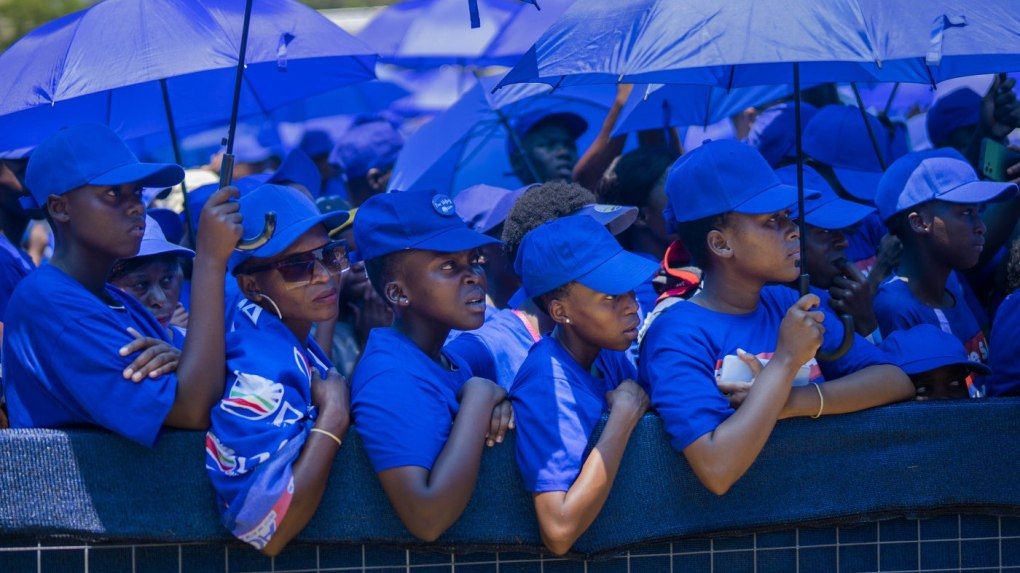In the midst of a severe energy crisis that has beleaguered South Africa, the Democratic Alliance (DA) emerges as a pivotal force, capitalizing on the nation’s distress for potential political leverage. As South Africa grapples with widespread power outages, administrative mismanagement, and serious allegations of sabotage, the DA’s emphatic push for the privatization of Eskom — the state-owned electricity public utility marred by inefficiencies and corruption allegations — distinguishes the party as a symbol of change and efficiency.

This approach is highlighted by a confidential letter that surfaced, outlining proposed measures for the energy sector, igniting discussions on the politicization of energy policy. Moreover, there have been reports suggesting the DA’s possible involvement or benefit from less frequent power disruptions in locales predominantly managed by DA leadership, raising concerns over the manipulation of energy supply as a political tool. Such strategies, particularly in light of the accusations of sabotage linked to the DA’s actions or policies, stir controversy and skepticism, especially with the approaching 2024 elections, suggesting a complex interplay between energy policy and political maneuvering.
This strategic positioning was emphatically highlighted past Saturday at the Union Buildings in Pretoria, where the DA launched its election manifesto before thousands of supporters. Under the leadership of John Steenhuisen, the party seized this moment to declare its readiness to govern and to address the pressing issues that plague the nation, including the protracted energy crisis. Steenhuisen’s proclamation that the ANC’s support might dip below 50% for the first time since 1994 was not just a statement of ambition but a clarion call for change, positioning the DA’s manifesto as not merely aspirational but as a tangible blueprint for the country’s resurgence. The comprehensive reforms outlined — targeting job creation, ending load shedding, and bolstering national security and governance — reflect a direct response to the challenges underscored by the ongoing energy turmoil.

The specter of sabotage within the energy sector, possibly orchestrated with foreign assistance, adds a sinister layer to the crisis. Incidents of interference at critical power stations like Koeberg, Hendrina, Tutuka, and Camden throughout 2022 have pointed to a concerted effort to destabilize the energy supply. Investigations by outlets such as BNN and Energy Central have not only highlighted the depth of local dissent but have also hinted at the involvement of international actors, thus magnifying the crisis’s complexity and its implications for national security. The potential foreign involvement suggests a global interest in South Africa’s energy woes and its political outcomes, raising the stakes for the forthcoming elections.
The government and Eskom’s attempts to navigate these sabotage incidents reflect the broader challenges facing South Africa’s energy sector, including aging infrastructure and financial instability. These issues necessitate strategic reform, yet they are complicated by the potential international dimension of the sabotage, challenging efforts to secure the energy grid and restore stability. Amidst these tumultuous developments, the allegations of sabotage, potentially aided by foreign entities, underscore a grim scenario of a nation under siege, with significant implications for the energy sector’s operational integrity and national security.
As South Africa grapples with this multifaceted crisis, the intertwining of energy woes with political ambitions paints a complex picture of a country at a crossroads. The DA’s calculated maneuvering, years in the making, aims to alter the outcome of the 2024 elections, indicating a convergence of interests that may well be shaping the nation’s political landscape. The party’s role, whether as a harbinger of necessary reform or as a political entity capitalizing on the situation, remains a topic of intense discussion and scrutiny.
As the elections draw near, the ongoing energy crisis in South Africa transforms into a complex battlefield of political ideologies, public sentiment, and debates over the nation’s future governance and economic health. The Democratic Alliance’s (DA) manifesto unveiling at the Union Buildings, far from being a mere political gathering, demands critical scrutiny. It is a moment that poses significant questions about the trajectory of South Africa’s democracy, amidst formidable challenges. This event, rather than being celebrated as a harbinger of hope and renewal, should be viewed through a lens of skepticism and concern. The DA’s strategies and proposed solutions, especially in light of their controversial stance on the privatization of Eskom and the allegations of benefiting from manipulated energy supply, invite accusations of exploiting the crisis for political gain. As such, this pivotal moment underscores the need for a thorough examination of the DA’s intentions and policies, challenging their portrayal as a force for positive change in the face of South Africa’s energy turmoil.